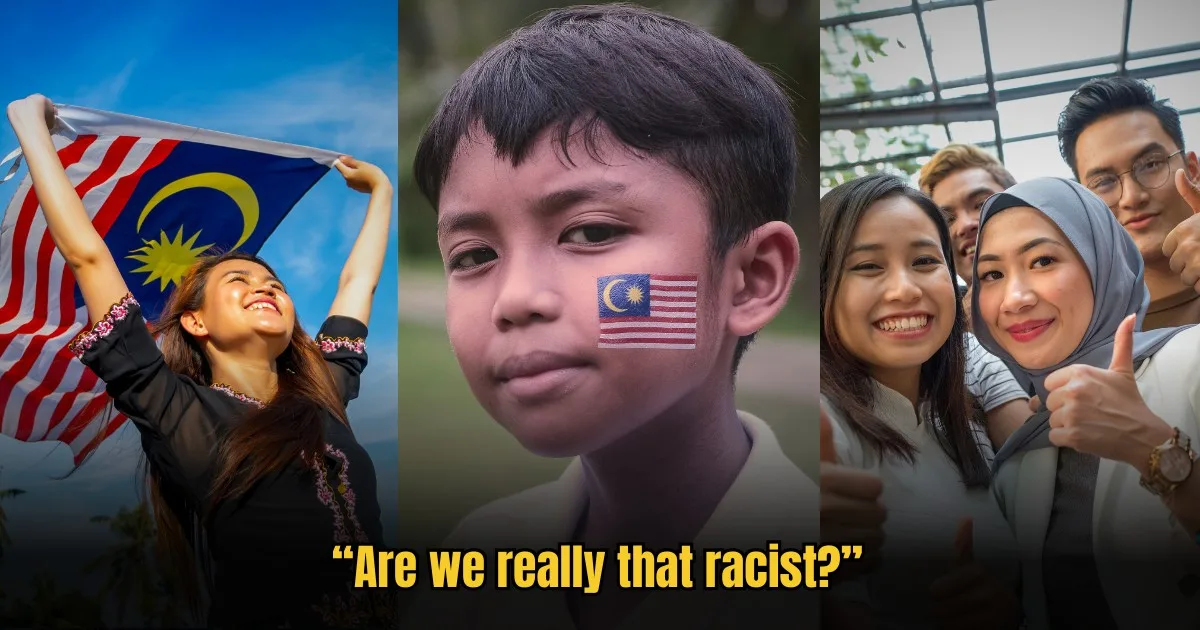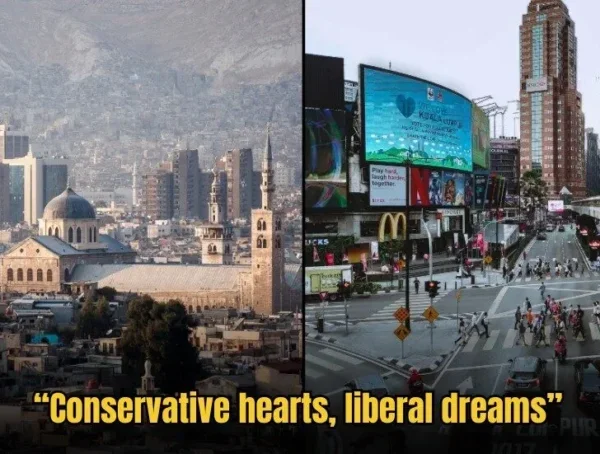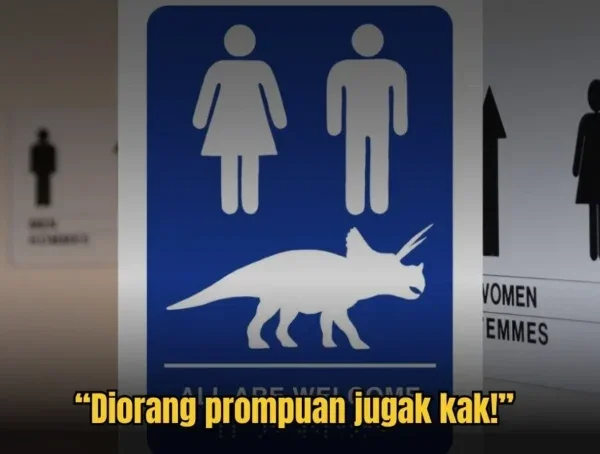Disclaimer: In Real Life is a platform for everyday people to share their experiences and voices. This article is the personal opinion of the author and does not necessarily echo the opinions of In Real Life.

Malaysia may have won 2 bronze medals at the Paris Olympics this year, but now we’ve also nabbed Silver in probably the worst category invented: Most Racist Country In The World.
In a global survey conducted by data portal Indexmundi, Malaysia ranked #2 on the racial discrimination scale, coming behind South Africa.
Given South Africa’s long-standing battle with racial segregation, discrimination and apartheid, it makes sense that South Africa is the biggest player in this game. But why did Malaysia get the dubious distinction of being #2?
How did Malaysia wind up here?
Many Malaysians were unhappy with these statistics, saying that Malaysia doesn’t deserve its #2 ranking for most racist country in the world, questioning why the likes of Singapore, USA, and many other countries with high racial incidents placed much lower.
Granted, being a culturally-rich and diverse country, there is bound to be some degree of racism, in my opinion. Putting three beautiful yet starkly distinct ethnic groups and getting them to co-exist will definitely invite some form of prejudice.
Integrating three groups of different value systems, ways of life, languages, religions and of course, skin tones will most definitely open the doors for discrimination.
But are we really that bad?
Personally speaking, these statistics shocked me. Growing up in Sri Petaling in Klang Valley, racism was something I fortunately did not experience much of as an Indian girl.
Living in a Chinese-majority neighbourhood, my family and I cultivated a deep love of Chinese cuisine (we are Indian). The main reason was because our neighbour was a dai chow hawker and she would give us food everyday! From Hokkien mee (black mee), to Cantonese Yin Yong to Charsiew Rice, we were spoiled for choice.
In kind, my mother would send over her home-cooked chicken curry, dahl and more. My older siblings would play badminton with the neighbour kids and there was never any sort of discrimination or racial tension that went around.
We shared our food with each other, played football and badminton together, and watched each other’s kids while parents were out.
Comments about skin tone and physical traits never once came up and thus all of us share a deep connection because we never felt separate or different from one another.
Even language did not pose any sort of a barrier although they spoke Cantonese and our main language was English. We had Bahasa Malaysia as our bahasa penghantar or lingua franca and communication was well and swell.
Yes, casual racism exists here – but so does everywhere else
Of course, I’m not denying that casual racism exists in Malaysia. Phrases such as “I can’t see you in the dark” directed toward Indians or “Mata sepet” towards the Chinese are all classic examples of how we use each other’s differences as artillery for mockery when we should be celebrating them as diversity.
From Chinese parents threatening their kids to behave lest the “Indian man comes and gets you” to property owners only allowing certain races or same-race tenants to rent their properties – there are very real racist scenarios that have played out for many Malaysians.
However, we can find these very scenarios occurring in Singapore and many other ethnically-diverse countries, and yet, they didn’t qualify for the top #3; not even the top #10.
Are all these instances, heart-breaking though they are, enough to land us in second place in the index or racist countries? What gives Malaysia its X-factor?
Maybe it’s because of our NEP
Perhaps it’s due to the systemic racism in Malaysia. Simply put, systemic racism refers to how certain laws, policies, and practices have been put in place to favour one race over other races within a system.
In the 1970s, when the Tun Razak government implemented the NEP, it was originally to help lift the economically disadvantaged Bumiputera out of poverty. Now 50+ years on, the NEP’s success is still endlessly debated, sowing division amongst the races in Malaysia over how effective the affirmative action nature of the policies were and who they really benefited.
While these policies were originally designed to help the Malays catch up economically after British colonial rule, they have led to inequality and feelings of unfairness among other ethnic groups like the Chinese and Indians, who may find it harder to get the same opportunities.
The dissatisfaction brought on by the special rights and privileges to which the Malays have been entitled to has always been the unaddressed elephant in the room. Everyone knows everyone is unhappy about it, but no one brings it up and no one does anything about it.
Can Malaysia shake off the chains of the past?
To be fair: systemic racism exists everywhere. The USA’s own history with slavery can attest to this. But at least there, the fight for racial equality is made possible by the USA’s freedom of speech laws, influencing the legislature to bend its will for the greater good.
In Malaysia however, certain topics are very hush-hush and we simply cannot, by law, talk about them. With dissenting voices kept on a tight leash, how can governing bodies be pushed to pass reforms for the benefit of all?
Perhaps everyone thinks it is a futile attempt at reform since these policies are strongly rooted in our country’s nature and identity. But author and think-tank founder Chandran Nair is appealing to the Malays, especially the young, to voice their rejection of race-based ideologies.
“A direct comparison can be made with white supremacists and the most recent example in the US is Donald Trump. He exposed how widespread white supremacy is in that country. They use the poor white people to further their racist policies against Blacks, Hispanics, and Chinese. This is the same tactic used by racist politicians in Malaysia,” he added.
Is PuTERA15 a step in the right direction?
For the longest time, the tone of dissenting voices in Malaysia have been that of doom and gloom, that nothing will change. There is, however, a growing awareness among the public about the need to address systemic racism in Malaysia.
In his recent announcement of the PuTERA12 policy, Prime Minister Anwar Ibrahim has emphasised the importance of justice for all ethnic groups and has spoken against policies that discriminate based on race.
These statements about the government’s intention to move towards a more inclusive society, and calls to review and reform the NEP and other related policies have been met with less defensiveness compared to 20 or even 10 years ago.
But will it be enough to wash ourselves off the label of 2nd most racist country in the world? Are we finally ready to cast off the old imperfect system for a better, forward-thinking, and more inclusive one?
What do you think?
Submit your opinion to ym.efillaerni@olleh and you may be featured on In Real Life Malaysia.
Read also: Should English be Boycotted to Preserve Our National Identity as Malaysians?
Should English be Boycotted to Preserve Our National Identity as Malaysians?
More from Opinion
This Syrian Woman Compares Living in Malaysia with Her Home Country
This story is by a Syrian woman who shares her experiences of two parts of Asia that don't often get …
“Why Should I Cover My Tattoos To Get The Job?” Teacher Questions Dress Code in Malaysia’s Private Education Sector
This opinion piece is shared by a teacher who challenges the idea that tattoos should be covered up and calls …
“I’m not a Man!” Woman Who Is Constantly Mistaken For a Man in M’sia Shares Her Daily Struggle
This story is a user submission about one woman’s experience of being called a man in an MRT restroom, shining …














